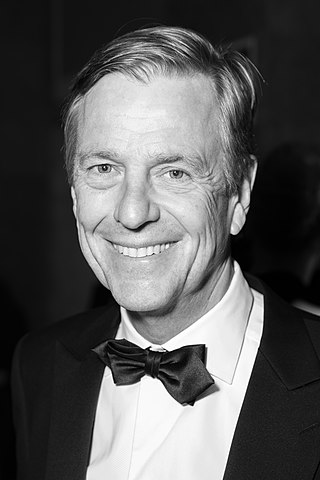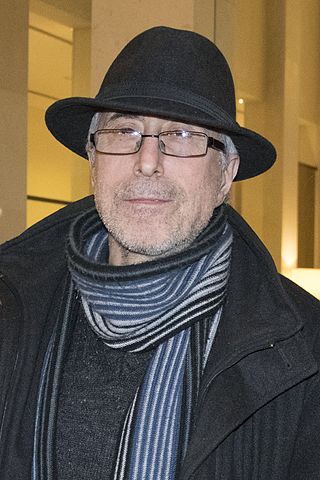Related Research Articles

The Alien and Sedition Acts were a set of four laws enacted in 1798 that applied restrictions to immigration and speech in the United States. The Naturalization Act of 1798 increased the requirements to seek citizenship, the Alien Friends Act of 1798 allowed the president to imprison and deport non-citizens, the Alien Enemies Act of 1798 gave the president additional powers to detain non-citizens during times of war, and the Sedition Act of 1798 criminalized false and malicious statements about the federal government. The Alien Friends Act and the Sedition Act expired after a set number of years, and the Naturalization Act was repealed in 1802. The Alien Enemies Act, as amended, is still in effect as 50 U.S.C. ch. 3.

Chris Marker was a French writer, photographer, documentary film director, multimedia artist and film essayist. His best known films are La Jetée (1962), A Grin Without a Cat (1977) and Sans Soleil (1983). Marker is usually associated with the Left Bank subset of the French New Wave that occurred in the late 1950s and 1960s, and included such other filmmakers as Alain Resnais, Agnès Varda and Jacques Demy.

Achtung Baby is the seventh studio album by the Irish rock band U2. It was produced by Daniel Lanois and Brian Eno, and was released on 18 November 1991 by Island Records. After criticism of their 1988 release Rattle and Hum, U2 shifted their direction to incorporate influences from alternative rock, industrial music, and electronic dance music into their sound. Thematically, Achtung Baby is darker, more introspective, and at times more flippant than their previous work. For his lyrics, lead vocalist Bono was partly inspired by the marital issues of guitarist the Edge.

Hans Conrad Schumann, also known as Konrad Schumann, was an East German Bereitschaftspolizist who escaped to West Germany during the construction of the Berlin Wall in 1961.
Franco de Peña is a Polish-Venezuelan film director.

William Klein was an American-born French photographer and filmmaker noted for his ironic approach to both media and his extensive use of unusual photographic techniques in the context of photojournalism and fashion photography. He was ranked 25th on Professional Photographer's list of 100 most influential photographers.
Bayerischer Fernsehpreis is an award presented by the government of Bavaria, Germany since 1989. The prize symbol is the "Blue Panther", a figure from the Nymphenburg Porcelain Manufactory. The prize money is €10,000.

Claus-Detlev Walter Kleber is a German journalist and former lawyer. He anchored heute-journal, an evening news program on ZDF, one of Germany's two major public TV stations. He is also known for his expertise in United States politics and German-American relations, as evidenced by his 2005 bestseller Amerikas Kreuzzüge.

Dito Tsintsadze is a Georgian film director and screenwriter. He has directed thirteen films since 1988. His film Lost Killers was screened in the Un Certain Regard section at the 2000 Cannes Film Festival. In 2007 he was a member of the jury at the 29th Moscow International Film Festival. Starting from the year 1996 he lives and works in Berlin.

Neukölln Unlimited is a 2010 German documentary. The film follows three Lebanese siblings—Hassan, Lial and Maradona—through their daily lives in Berlin's district of Neukölln.
German Exilliteratur is the name for works of German literature written in the German diaspora by refugee authors who fled from Nazi Germany, Nazi Austria, and the occupied territories between 1933 and 1945. These dissident writers, poets and artists, many of whom were of Jewish ancestry or held anti-Nazi beliefs, fled into exile in 1933 after the Nazi Party came to power in Germany and after Nazi Germany annexed Austria by the Anschluss in 1938, abolished the freedom of press, and started to prosecute authors and ban works.

From the Sky Down is a 2011 American documentary film directed by Davis Guggenheim about rock band U2 and the production of their 1991 album Achtung Baby. The film documents the album's difficult recording period, the band members' relationships, and the group's creative process. Guggenheim, who was commissioned by U2 to create the film to commemorate the record's 20th anniversary, spent several months in 2011 developing the documentary. The band were filmed during a return visit to Hansa Studios in Berlin where parts of the album were recorded, and during rehearsals in Winnipeg for the Glastonbury Festival 2011. The film contains unreleased scenes from the group's 1988 motion picture Rattle and Hum, along with archival footage and stills from the Achtung Baby recording sessions. Development of the album's emblematic song "One" is recounted through the replaying of old recording tapes.
Jordan Todorov is a Bulgarian documentary filmmaker, screenwriter, producer, and journalist. He graduated with an MA in Film Studies from the Krastyo Sarafov National Academy for Theatre and Film Arts in Sofia, Bulgaria in 2003.
The Villa Aurora at 520 Paseo Miramar is located in Pacific Palisades, Los Angeles and has been transformed into an artists' residence since 1995. It is the former home of the German-Jewish author Lion Feuchtwanger and his wife Marta. The Feuchtwangers bought this Spanish-style mansion in 1943. The house was a popular meeting place for artists and the community of German-speaking émigrés. Lion Feuchtwanger wrote six of his historical novels in this house: The Day Will Come, Proud Destiny, The Jewess of Toledo, Tis folly to be wise, Jephthah and his Daughter, and This is the Hour.

Norbert Busè is a German documentary filmmaker, film producer, and director.
Gisela Weimann is a German multimedia artist who lives and works in Berlin. Her working techniques range from painting, printmaking, photography, sculpture and film to performance art and art in public spaces. She has also written and published several books and essays about her own work, art collaborations and art history topics. Her work often focuses on political — particularly feminist — themes and on the relationship of art with political and social issues.

Hannes Stöhr is a German film director and screenwriter. He studied scriptwriting and directing at the Deutsche Film- und Fernsehakademie Berlin from 1994 to 1999. In 2006 Stöhr was a Villa Aurora grant recipient and lived for six months in Los Angeles, California. Hannes speaks German, Spanish, English, French and Portuguese. Stöhr is member of the European Filmacademy, lectures film at Film Academy Baden-Württemberg, Deutsche Film- und Fernsehakademie Berlin and the Goethe Institute. He lives in Berlin.
Ofir Raul Graizer is an Israeli film director, screenwriter, producer and editor. Graizer was born in Israel. He lives in Berlin. He is best known for his feature film debut, The Cakemaker. It was the Israeli submission for the Academy Award in 2019, won seven Ophir Awards in 2018 at the Israeli Academy, including Best Picture, Best Director, Best Script and Best Actress. Graizer published a book of short stories and recipes, Ofirs Kuche, in Germany in November 2018. He lives between Israel, Germany and the United States, and works internationally. The movie, inspired by Graizer's own experiences and those of a friend, is a love story and includes issues surrounding being gay. Graizer is himself gay.
The Revenge of the Dead Indians is a 1993 documentary film essay directed by Henning Lohner about composer John Cage and his theories about music. It pays tribute to Cage's thoughts, music, and influence and has been described as "an unexpected and fascinating combination of intellectual thought, viewpoints and opinions."

Resistance Fighters – The Global Antibiotics Crisis is a documentary film by the German director Michael Wech and producer Leopold Hoesch. It was broadcast on Arte on March 12, 2019 and had its international festival premiere at the Copenhagen International Documentary Festival (CPH:DOX) on March 24, 2019.
References
- ↑ "Thought in Action: The Art of the Essay Film" film listing in BFI season
- ↑ Memory of Berlin Film page on production company website (in German)
- ↑ Friendly Enemy Alien at distributor's website
- ↑ German United Distributors about Friendly Enemy Alien
- ↑ Tageszeitung (German newspaper) on Friendly Enemy Alien
- ↑ The Daily Telegraph (UK newspaper) on Friendly Enemy Alien
- ↑ Chris Marker, 1998, cited in 10 Jahre Villa Aurora 1995–2005, Berlin, 2005
- ↑ Planète Marker retrospective, Paris October – December 2013
- ↑ The Guardian Article about Shakespeare Prize
- ↑ Nipkow Programme Fellowships
- ↑ Villa Aurora Bio
- ↑ The D-Word Documentary community
- ↑ New York and London: Routledge, 2006
- ↑ Achtung Berlin Archived 27 September 2007 at the Wayback Machine New Berlin Film Awards
- ↑ "Profile - Nipkow Programm".
- ↑ [https://www.metfilmschool.de/
- ↑ Mentor, ZeLIG School for Documentary, Television and New Media
- ↑ "Film Commission - Film Fund & Commission - IDM Südtirol".
- ↑ Behind Words at distributor's website
- ↑ IMDb John Burgan